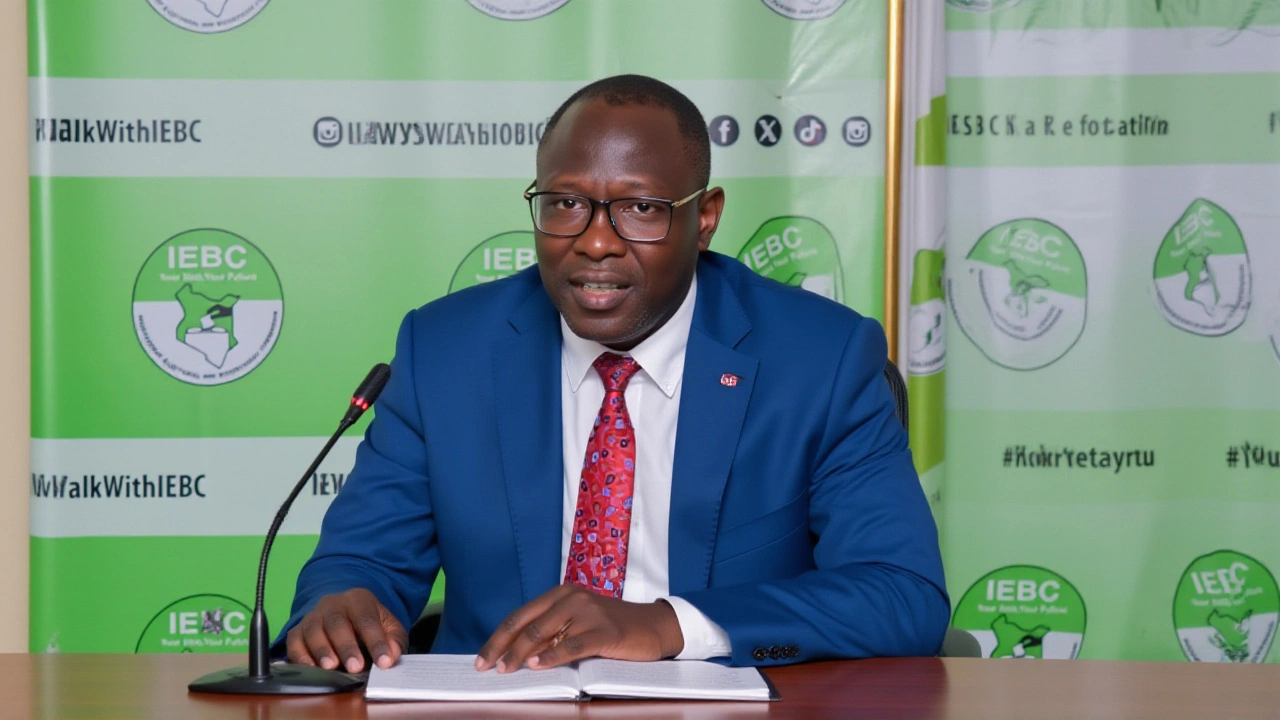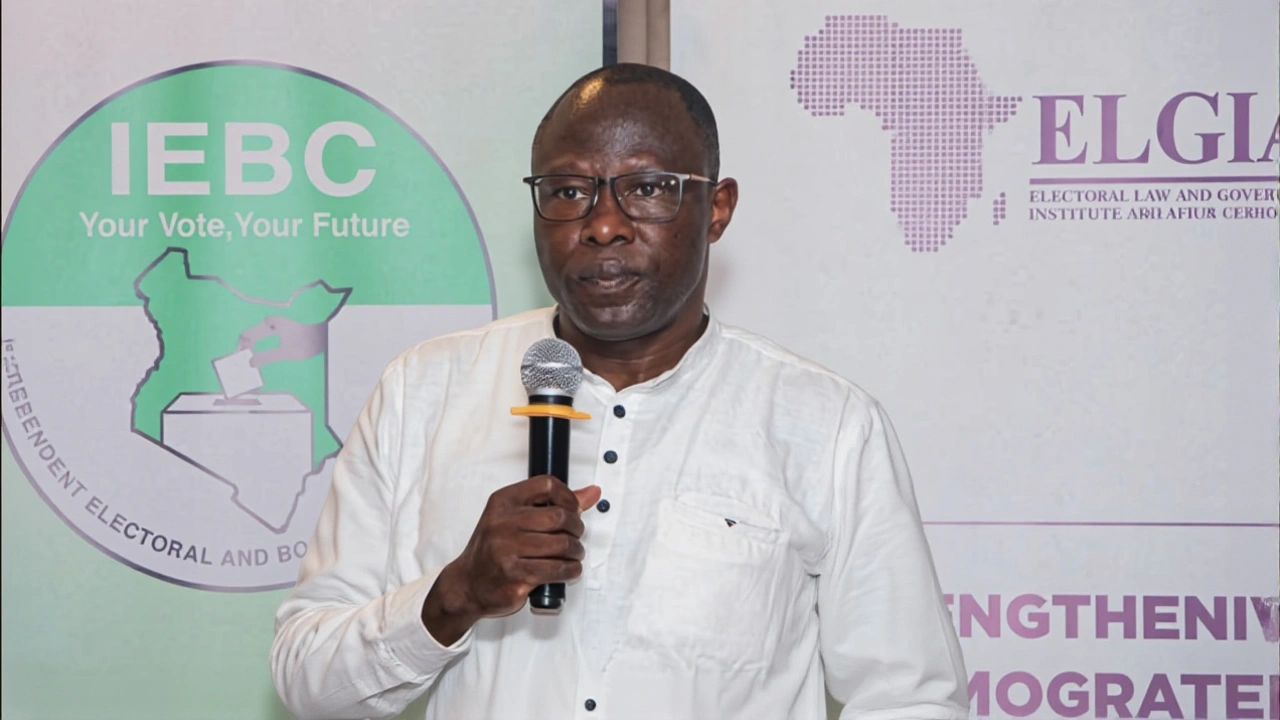When Erastus Edung Ethekon, Chairman of the Independent Electoral and Boundaries Commission declared November 27, 2025 the day Kenyans will head to the polls for all pending by-elections, the country got a clear, time‑bound test of its revamped vote‑counting machine. The announcement came on September 3, 2025 and instantly set a six‑week campaign clock that ends just three days before the ballot, a schedule many see as a rehearsal for the massive 2027 general election.
The commission first published the official election date on August 8 and again on August 11, 2025, signalling that the logistics are already in place. Resources have been earmarked, funding secured, and a slew of new procedural guidelines rolled out – all aimed at rebuilding public confidence after the fraught 2022 polls.
“Our priority is a transparent, orderly process that respects every voter’s right,” Ethekon told reporters at the headquarters of the commission in Nairobi on September 3. “The timeline you see here is the result of months of planning and consultation with parties, civil society, and the judiciary.”
Background: Kenya’s electoral calendar and the IEBC’s recent overhaul
Kenya’s election cycle has long been punctuated by tightly fought contests and occasional post‑vote turbulence. The 2027 General ElectionKenya looms on the horizon, and the by‑elections are the first real‑world trial of the new IEBC leadership that took over after President Uhuru Kenyatta’s administration pledged reforms.
Since taking the helm in early 2025, the commission has overhauled its internal audit systems, introduced biometric voter verification, and intensified training for returning officers across the country. Those moves were prompted by the 2017 and 2022 elections, which exposed gaps in result transmission and allegations of vote‑rigging.
Detailed timeline and procedural guidelines
The roadmap released by the IEBC is a tightly packed calendar:
- August 8 & 11, 2025 – Official by‑election date published.
- September 2025 – Candidate processing and vetting completed.
- October 8‑9, 2025 – Submission of nomination papers for parties and independents.
- October 8 – November 24, 2025 – Campaign period, with daily limits on rallies and advertising as per the Electoral Code of Conduct.
- October 8 – October 17, 2025 – Dispute resolution window for nomination challenges.
- November 27, 2025 – Polling day for all pending by‑elections.
All aspirants must sign the Second Schedule to the Elections Act, 2011, which spells out prohibited activities, donor disclosure rules, and penalties for breaches.
Reactions from political parties and civil society
The opposition coalition, led by James K. Sriti, welcomed the certainty but warned that “the real test will be whether the IEBC can enforce the code without bias.” Meanwhile, the ruling Party of National Unity (PNU) issued a statement emphasizing its readiness to “contest every seat within the boundaries of the law.”
Transparency International Kenya’s local chapter issued a brief noting that “the clear dispute‑resolution timeline is a positive step, but monitoring bodies must stay vigilant to ensure impartiality.”
Implications for voter registration and the upcoming 2027 election
Coinciding with the by‑election preparations is the relaunch of the Continuous Voter Registration (CVR) programme, a drive aimed at capturing the country’s burgeoning Generation Z electorate. The commission reported that in the first week of the CVR reboot, 7,048 new voters were added, 259 voters transferred to their preferred polling centres, and 8 individuals updated personal details.
Analysts say the fresh register could swing swing constituencies in the 2027 race, especially in urban hubs like Nairobi and Mombasa, where younger voters are more likely to push for reform‑oriented candidates.
What to watch moving forward
Stakeholders will be keeping an eye on three critical fronts:
- Logistical execution – Are ballot papers delivered on time to remote polling stations?
- Code enforcement – Will the IEBC act swiftly on any reported violations, such as illegal campaign advertising?
- Dispute outcomes – The October dispute panel’s rulings could set precedents for handling challenges ahead of the 2027 vote.
If the November 27 polls run smoothly, the commission could claim a much‑needed win for credibility, giving President William Ruto’s administration a more stable platform to build on before the general election.

Frequently Asked Questions
How does this affect independent candidates?
Independent candidates must file their nomination papers on October 8 or 9, 2025, and they are bound by the same Electoral Code of Conduct as party‑backed contenders. The IEBC warned that any deviation from the stipulated timelines will result in automatic disqualification.
Why are the November 27 by‑elections considered a litmus test?
The by‑elections are the first nationwide exercise under the reconstituted IEBC. Their success – from ballot distribution to dispute resolution – will indicate whether the reforms introduced after the 2022 polls are working, shaping expectations for the high‑stakes 2027 general election.
What changes to campaigning are introduced by the new guidelines?
The guidelines cap rally durations at two hours, limit the number of public addresses per candidate to ten, and require all campaign materials to display the IEBC’s compliance seal. Violations trigger fines up to Ksh 500,000 and possible suspension of the offending candidate’s campaign.
What does the recent CVR surge mean for the 2027 election?
Adding over seven thousand new voters in a single week shows the CVR drive is gaining momentum, particularly among younger citizens. This demographic tilt could alter the dynamics in marginal constituencies and force parties to tailor policies toward issues like education, employment, and digital rights.
What mechanisms are in place to resolve election disputes?
The IEBC’s Dispute Resolution Committee will hear challenges from October 8 to 17, 2025. Decisions are binding and can be appealed to the Court of Appeal within five days. The Electoral Code of Conduct Committee will continue monitoring any breaches up to the official gazetting of the elected representatives.


George Thomas
The IEBC's six‑week campaign schedule appears to be a well‑structured framework that should facilitate orderly elections. By setting clear milestones, the commission reduces ambiguity for parties and voters alike. This timeline, if adhered to, could serve as a benchmark for the 2027 general election.